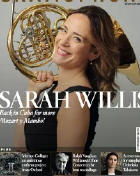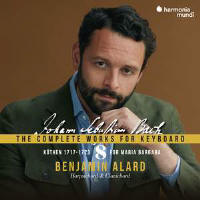Texte paru dans: / Appeared in: |
|
|
Outil de traduction |
|
|
The probity of Alard’s interpretations is bolstered by the intelligence of his programming. Bach completed his cycle of solo violin works in 1720 and often demonstrated them on the keyboard, his preferred instrument. The D minor Sonata, BWV964, based on the A minor Solo Violin Sonata, is a case in point. An arrangement of the famous D minor Chaconne is also included. Rather than two discrete sets of 15, Alard presents the Inventions and Sinfonias together, C major two-part Invention followed by C major three-part Sinfonia, and so on. And given Bach’s admiration for Couperin and their purported correspondence, Alard prefaces each of the six French Suites with a Prelude from L’art de toucher le clavecin. Alard’s approach is cantabile above all. This is not to say that kinaesthesia is lacking; dance movements are lively and evocative. These affects are achieved of course by varieties of attack and release, an extraordinary range of which Alard has at his command. There is also a centredness to his interpretations, so that while listening to them it is difficult to imagine alternative approaches. It’s the sort of music-making that, its intellectual grasp notwithstanding, clearly emanates from the heart. |
|




